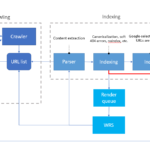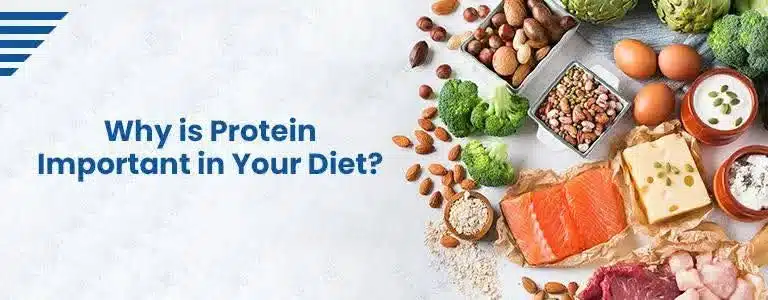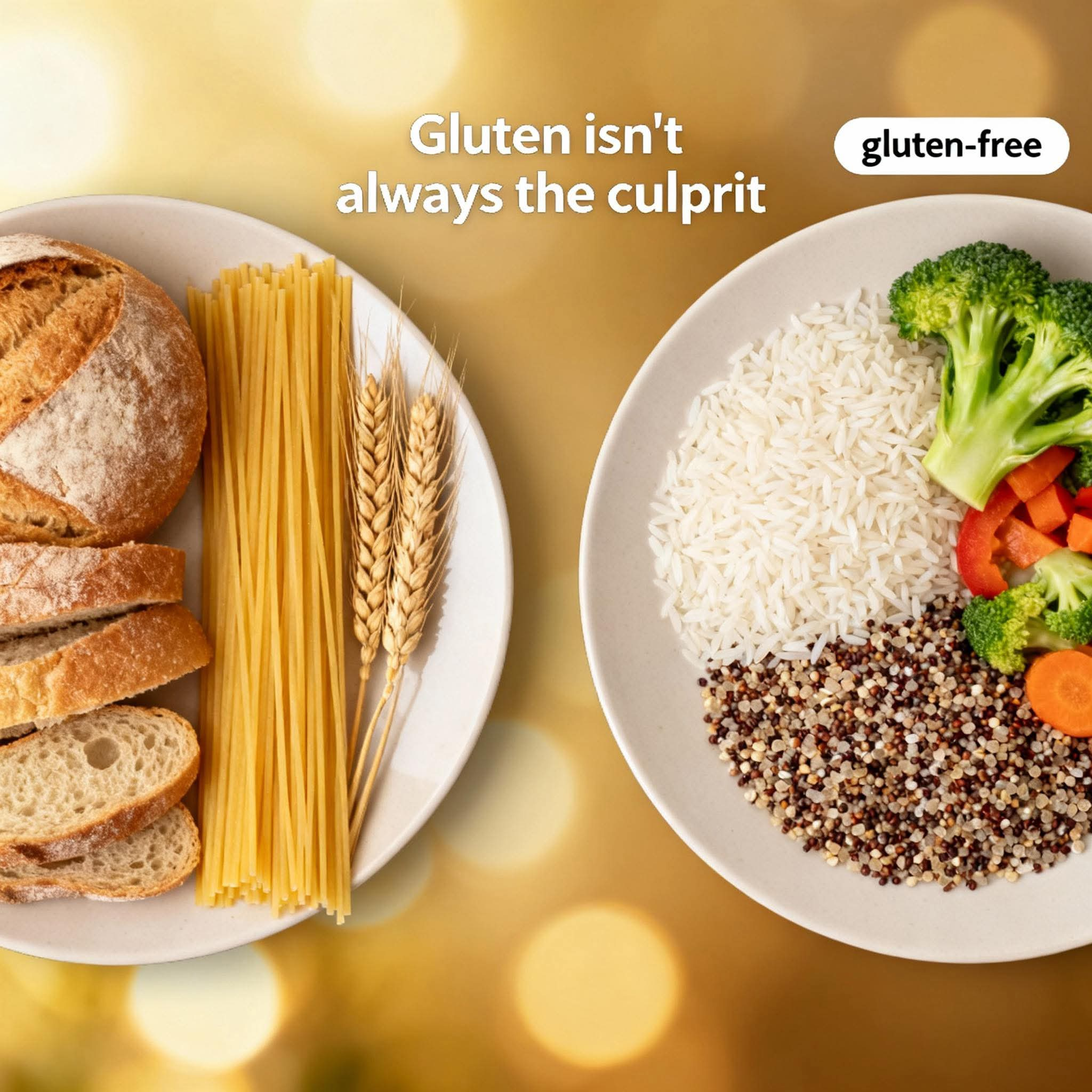Why Protein Is Important in Your Diet
By Pankaj Dhuper, Fittr Coach
Protein is one of the most essential nutrients your body needs to function optimally. Whether your goal is to build muscle, lose fat, recover from injury, or simply stay healthy and strong as you age—adequate protein intake is key.
In this article, we’ll cover what protein does in the body, how much you need, what happens if you don’t get enough, and the best sources of this crucial macronutrient.
Key Functions of Dietary Protein
Essential for Growth and Maintenance
Proteins are made up of amino acids, which are required for the growth, maintenance, and repair of body tissues. From muscle cells and enzymes to skin and hormones, your body constantly breaks down and rebuilds cells—and protein is at the heart of this process.
Adequate protein intake:
- Supports muscle development
- Aids cellular repair
- Facilitates the creation of important enzymes and hormones
Supports Muscle Mass and Strength
Protein intake is vital for preserving and building skeletal muscle mass. This is especially important for:
- People doing strength training
- Individuals on fat-loss diets
- Older adults looking to prevent muscle loss (sarcopenia)
By stimulating muscle protein synthesis, dietary protein helps maintain lean body mass and supports strength and performance.
Critical for Immunity and Health
Protein plays a central role in maintaining your immune system. It is necessary for:
- Production of antibodies and immune cells
- Repairing tissues during illness
- Supporting blood health and oxygen transport
Deficiency can lead to fatigue, stunted growth, poor wound healing, and frequent infections.
Satiety and Weight Management
Protein is more satiating than carbohydrates and fats, which means:
- You feel fuller longer
- Hunger and cravings reduce
- You consume fewer calories overall
Additionally, high-protein diets increase thermogenesis—the energy required to digest food—leading to a higher calorie burn at rest.
Structural and Functional Role
Proteins account for about 15% of your total body weight. They are involved in:
- Building muscle, skin, and organs
- Supporting enzyme reactions
- Transporting molecules
- Regulating metabolism
Without adequate protein, your body simply cannot function at its best.
The Importance of Protein Quality
Not all proteins are created equal. The quality of a protein is defined by:
- Its amino acid composition (especially essential amino acids)
- Its digestibility and bioavailability
Animal proteins (like eggs, dairy, and meat) are complete proteins, meaning they contain all essential amino acids. Most plant proteins are incomplete but can be combined (e.g., rice and beans) to meet your needs.
Recommended Intake
Daily Guidelines
- General adult population: 0.8g protein per kg of body weight
- Active individuals: 1.2–1.6g/kg
- Athletes or strength training: 1.6–2g/kg
- Older adults or those in recovery: Up to 2g/kg may be beneficial
Example: A 70 kg person aiming for muscle gain may need between 112–140 grams of protein per day.
Is More Protein Harmful?
For healthy individuals, long-term protein intake up to 2g/kg/day is safe. The myth that high-protein diets damage the kidneys has been debunked—unless there’s pre-existing kidney disease.
Consequences of Protein Deficiency
If your diet lacks adequate protein, you may experience:
- Loss of muscle mass
- Physical weakness and fatigue
- Stunted growth in children
- Weakened immunity
- Slower wound healing
- Anemia and increased risk of illness
Even mild deficiencies can impair performance, recovery, and overall health.
Best Sources of High-Quality Protein
Animal-Based (Complete Proteins)
- Eggs
- Chicken, fish, turkey
- Milk, curd, paneer, Greek yogurt
- Whey protein supplements
Plant-Based (May Need Combining)
- Lentils, beans, chickpeas
- Soy (tofu, tempeh, soy chunks)
- Quinoa, amaranth
- Nuts and seeds
Tip: Combine cereals and legumes (like rice + dal) to form complete protein profiles.
Conclusion
Protein is far more than a “muscle-building nutrient.” It’s essential for your body’s repair, recovery, immunity, metabolism, and overall function.
To stay healthy, strong, and energized:
- Include a source of protein in every meal
- Choose high-quality sources
- Balance animal and plant proteins
- Adjust intake based on activity, age, and goals
Sources
- Dietary protein intake and human health – PubMed https://pubmed.ncbi.nlm.nih.gov/26797090/
- Importance of Energy, Dietary Protein Sources, and Amino Acid – https://pmc.ncbi.nlm.nih.gov/articles/PMC11313897/
- Dietary Protein and Muscle Mass: Translating Science to Application – https://pmc.ncbi.nlm.nih.gov/articles/PMC6566799/
- Effects of Dietary Protein on Body Composition in Exercising – https://pubmed.ncbi.nlm.nih.gov/32630466/
- The importance of dietary protein for muscle health in inactive – https://pubmed.ncbi.nlm.nih.gov/25118148/
- The significance of protein in food intake and body weight regulation – https://pubmed.ncbi.nlm.nih.gov/14557793/
- Clinical Evidence and Mechanisms of High-Protein Diet-Induced – https://pmc.ncbi.nlm.nih.gov/articles/PMC7539343/
- Protein for Life: Review of Optimal Protein Intake, Sustainable – https://pmc.ncbi.nlm.nih.gov/articles/PMC5872778/
- Protein – Diet and Health – NCBI Bookshelf – https://www.ncbi.nlm.nih.gov/books/NBK218739/
- Protein and Amino Acids – Recommended Dietary Allowances – https://www.ncbi.nlm.nih.gov/books/NBK234922/
#PankajDhuper #FittrCoach #Protein #HealthyLiving #FitnessNutrition #MuscleMass #WeightLoss #NutritionTips #EatClean #MealPlanning #ProteinPower #FitnessLifestyle









